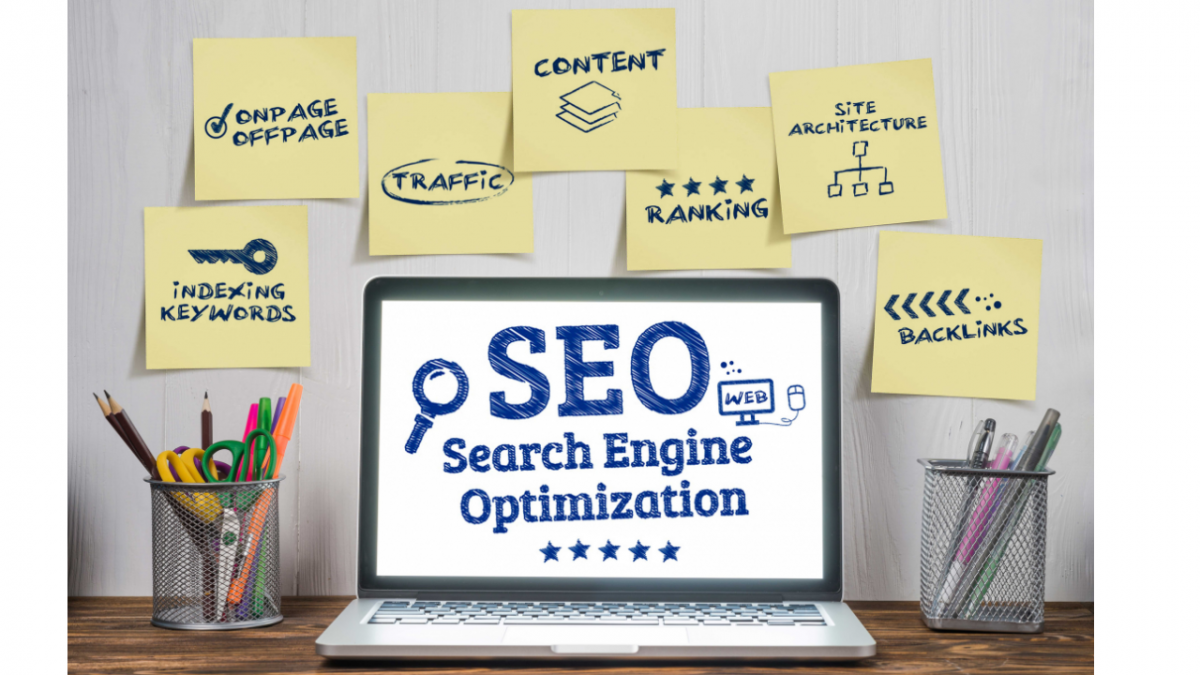SEO, or search engine optimisation, is the practice of orientating your website to appear higher on the internet results page so that you receive more traffic. In short, it attracts more people to click on your website and brings you more business. When searching up ‘plumbers’ do you click the first link that appears? The answer is probably yes, as most people tend to do, so you want your website to appear as high up as possible so that more people click on it. SEO is essential if you want more website visitors.
SEO is critical because it ensures organic traffic to your website. The vast majority of visitors will find you through looking something up on the internet. Ranking high in search results is key to achieve your business goals and builds trust – the first results that pop up are seen as more trustworthy. So how can you trick Google into boosting your website to the top?
Trillions of searches are conducted every second, so it’s essential that your website is search engine friendly. We’ve put together a short beginner friendly guide to help you optimise your website.
There’s a few different types of SEO:
- Technical SEO: Optimising the technical aspects of a website
- On-site SEO: Optimising the content on your website for visitors and for search engines
- Off-site SEO: Activities not on your website that will ultimately increase your search rankings – such as backlinks, branded searches and coherent brand awareness and recognition on other platforms like social media.
While you have full control over the Technical and On-site aspects of your website, controlling Off-site SEO isn’t always possible. For example, you cannot control which websites use your link, or if the websites you link to shut down or change.
Optimising the technical aspects of your website will take practice and knowledge of website building, so we’re going to focus on the On-Site SEO for now.
Identifying Keywords:

A good place to start with SEO is optimising your keywords. By keywords we mean identifying key phrases that relate to your business. If you are a roofing company based in Cheddar, a good place to start would be ‘roofing Cheddar’ and ‘Cheddar thatcher’. These should be as relevant as possible and location-based, while being specific. For example, ‘roofing Cheddar’ will work better than ‘professional roofing’ or just ‘roofing’. You can use a tool to help identify them, such as Google Keyword Planner or Google Trends.
Adding Keywords to Page Title:

The next step is adding those keywords to the title of your page. This is also known as tagging. Take the example of our roofing company in Cheddar, who we’ll call Excellent Roofing, we want the title page to read:
Excellent Roofing: Roofing Cheddar | Thatchers
Google Autocomplete is a tool that generates suggestions for relevant keywords you can use. Free versions of these tools will generate suggestions, but won’t be that helpful when trying to analyse how often those keywords are used, or to what extent. Delving into SEO marketing yourself can be costly, especially when you are just starting out optimising your website.
Sprinkle your keywords throughout the website as well, but don’t force it! Remember your priority is to be user-friendly, so over-use of keywords might deter potential customers.
Clean Structure:

If your website is overly complicated, you might be attracting initial traffic, but potential customers might be leaving before they have a chance to contact you. Make sure your contact details are displayed visibly, along with an easy to navigate menu and relevant pictures. Adding internal links (links from one side of your website to another) will give Google more clues about what your website is about, and will display it to those that are searching for similar services.
You can read more about structuring websites here.
Content:

Relevant, substantial content that answers the keyword search is the way to go. While skimmable, to the point content is great, it doesn’t rank as highly as more lengthy, in-depth content does. We’re aiming for 200 words and above on every page that answers a question. For example, finding the ‘about us’ section should be easy and organic, and actually tell potential customer enough about your business for them to gage if they want to do business with you.
Tags:

We’ve briefly mentioned tagging when talking about keywords above. Keywords in your title and the description of the page (that’s the short blurb of text that appears under the title on the results page) are key to a website ranking high, but you will also need to tag your images correctly. Google can’t interpret images, so adding a short description not only helps visitors learn what the image is if it isn’t loading, but also helps Google identify and rank your content.
Think of the internet like a big sea of fish, and you’re trying to catch tuna. It’s difficult to narrow down which fish you’ll catch, but using the correct fishing rod, bait and fishing in the right spots can greatly increase your chances of catching the fish you want. There’s a lot you can do for your business, but so much happens behind the scenes, from coding to technical improvements to offsite presence that it can get quite overwhelming. Local Pages is here to help! Here’s how we can help with your company’s SEO:
Strategy: Content Creation and Organisation
Everything starts with strategy. We can’t expect results without planning, setting out specific objectives and really understanding the audience we’re trying to reach. That’s why we work with you to develop a strategy that will work for you, your customers and your business, and evaluate the strategy on a regular basis.
Technical: Coding Errors and the Back End of SEO
All those paid services listed above like Google Keyword Planner that analyse how often keywords are put through a search engine and how widely used they are – we’ll take care of that for you. We’ll research how to optimise your online presence and take care of everything from behind the scenes – from coding to technical improvements.
Offsite: Backlinks and Social Media
Linking social media to your website proves to search engines that your website is credible. We can help with linking, designing and optimising content, all within your brand.
Ongoing Support
Even after we do the boring bits, we’re here to support and optimise your SEO. Let us do what we do best, so you can do what you do best.
You can find out more about SEO and other digital services we offer by clicking here.
You can also schedule a free consultation by clicking here.
Categories Advertising, Blog, Business Tips, Design, Help & Advice, Marketing, Media, Social media, Websites

